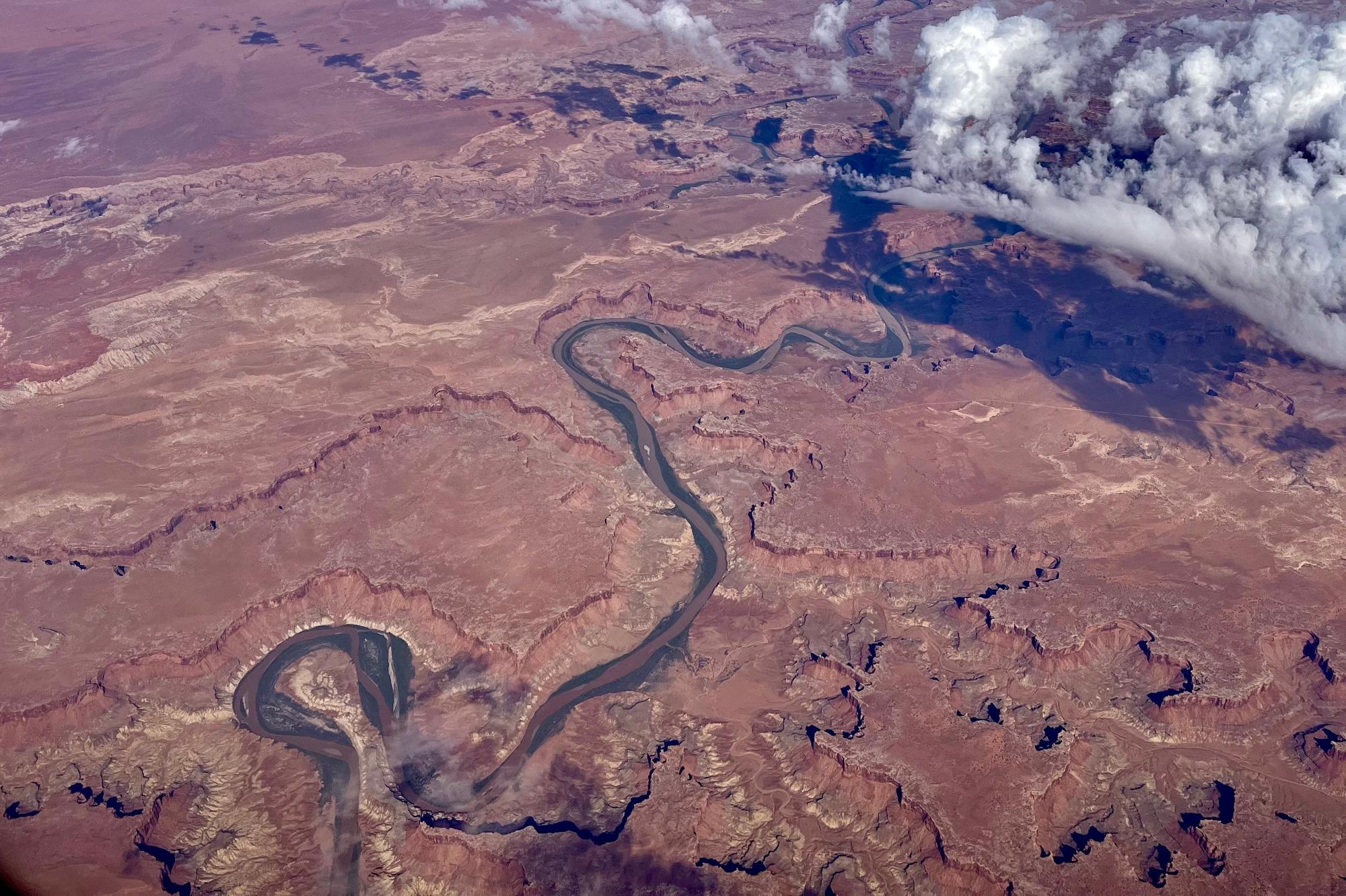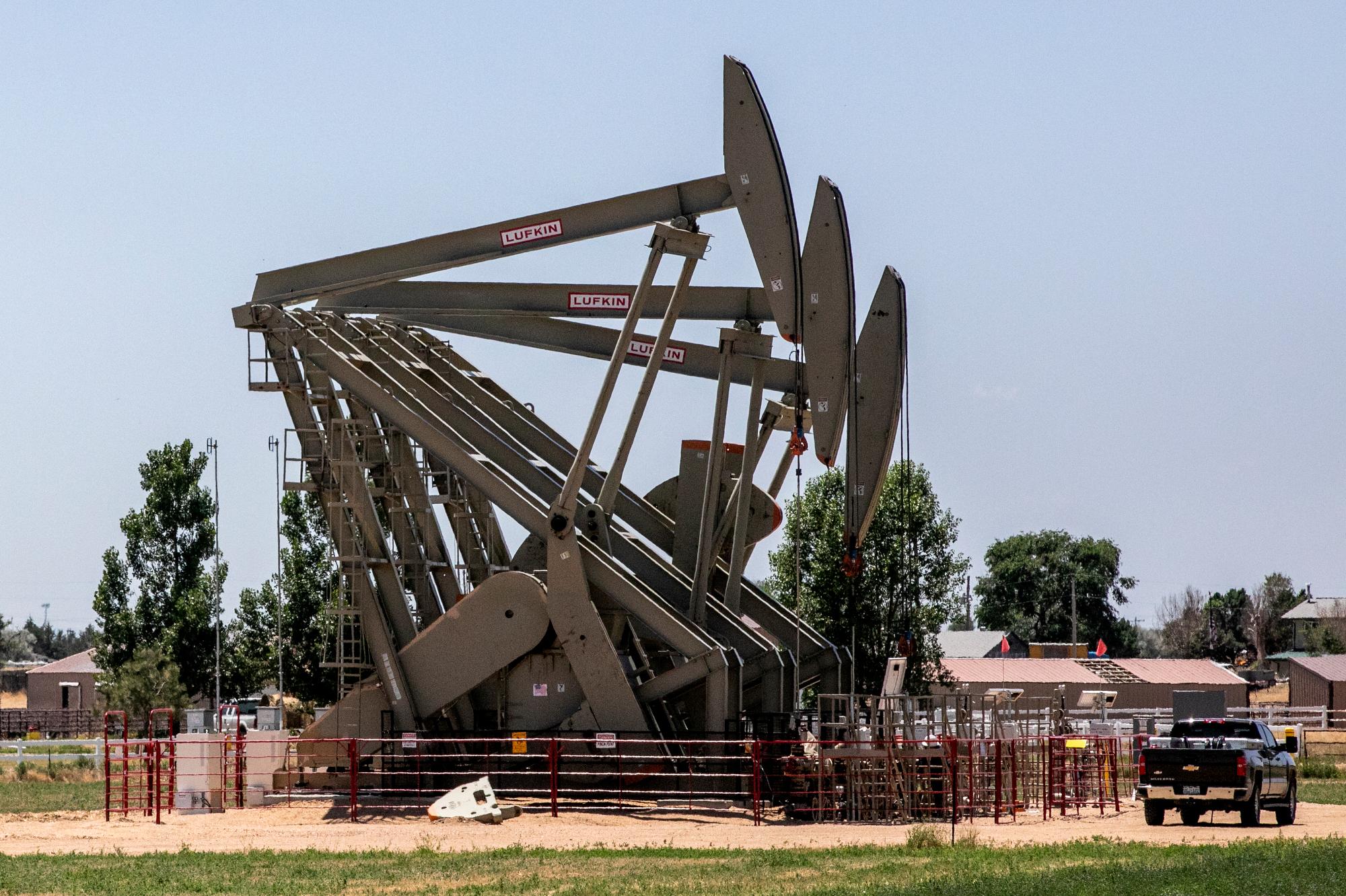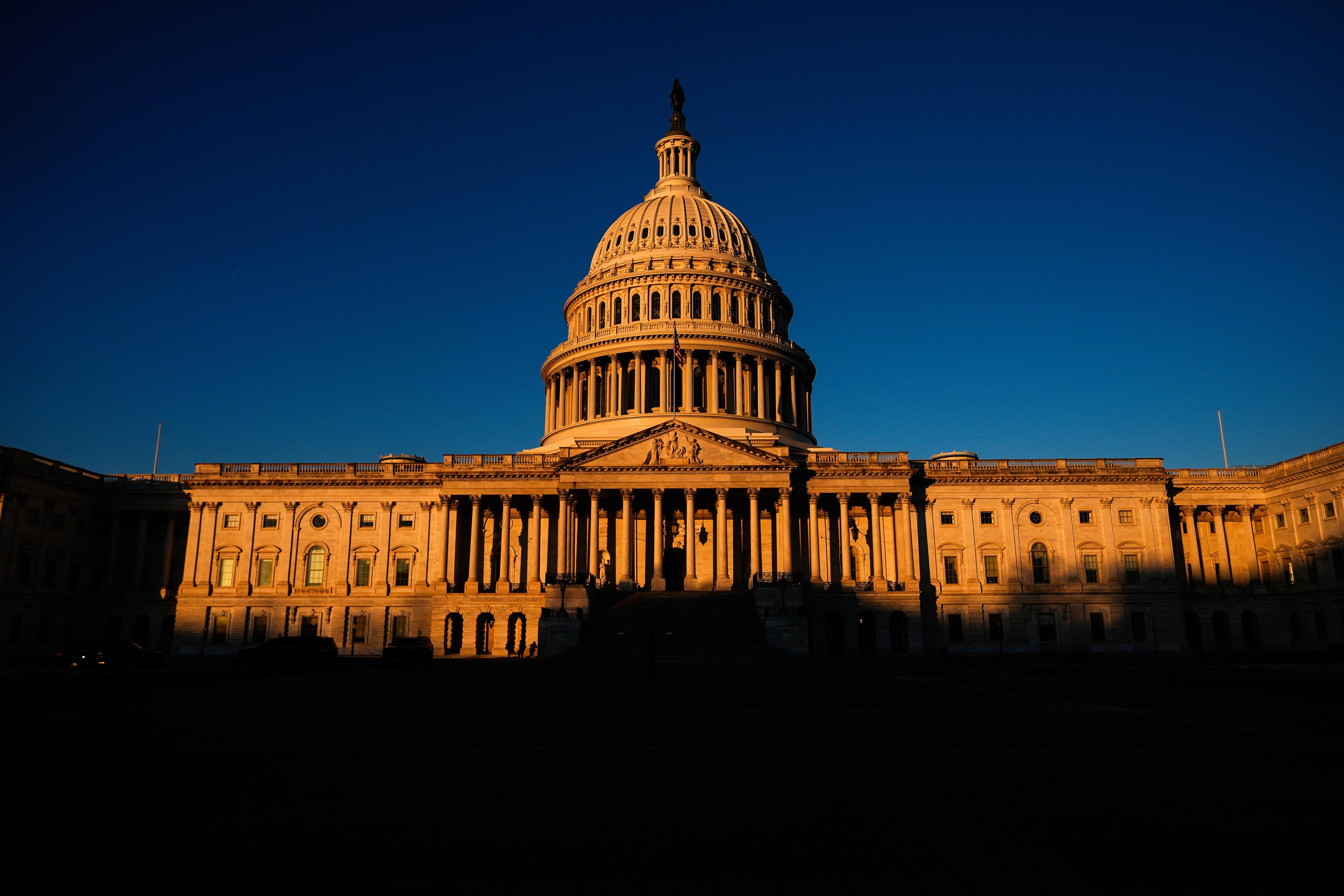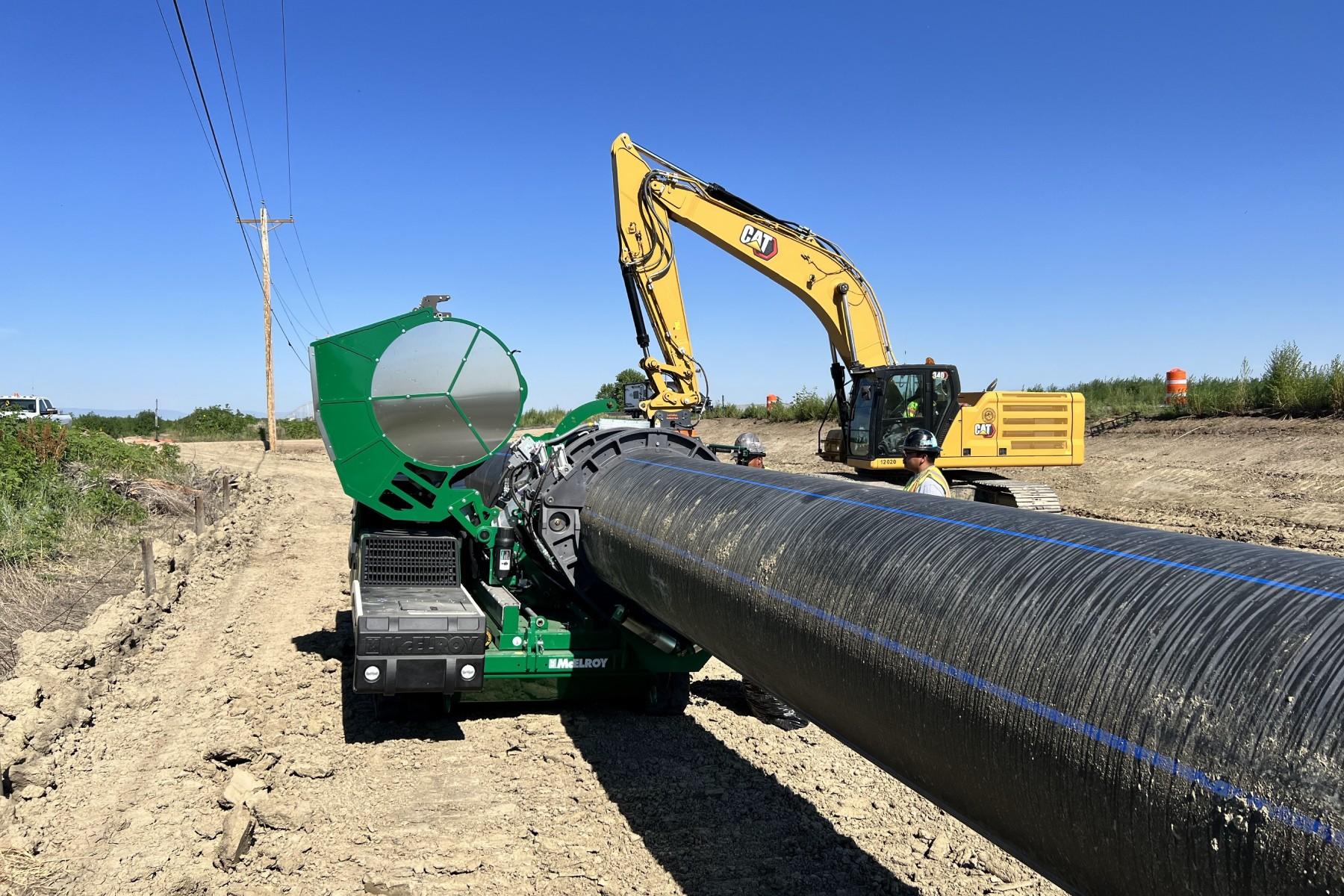
From leaving some farmland fallow, to pressuring cities to conserve more water, Colorado Sen. John Hickenlooper, a Democrat, says everything should be on the table to use Colorado River water more efficiently and help it sustain life in the southwestern U.S. for years to come.
Hickenlooper is helping convene a group of senators to try to broker a compromise to conserve Colorado River water.
The Colorado River Compact was signed in 1922 and established how much water seven states, dozens of tribes, and Mexico can use. But between overuse and a mega drought that has lasted longer than 20 years, the southwest is dangerously close to not being able to get water where it needs to go.
“As flawed as the compact may be, we need consent to change it. We need to get everybody around the table and agree to it or else we're going to end up in court,” Hickenlooper told Colorado Matters senior host Ryan Warner, “We need to look at how everyone involved can be responsible in trying to use less water.”
This interview has been edited and condensed for clarity.
Ryan Warner: Let's help people understand the stakes. In a previous career, you owned a brewery in Denver. How much did you think about water then and how would the picture be different today if you were still in the beer business?
Sen. John Hickenlooper: In the beer business, your connection to water is very direct. People brag about the quality of their beer reflecting the quality of the water they use. It's precious. But even more important is the volume of water that you use, not just in beer, but in almost all of our food processing systems, our food growing. All this takes water. Not just the water that goes into the plant, but all the water all the way along the supply chain. A large percentage of our winter vegetables are grown from water that comes out of the Colorado River. That's at risk.
Do you think that there's something grown in the West that shouldn't be?
No, I wouldn't say that. I think that the winter vegetables that people rely on like lettuce, string beans, and broccoli, we can get them from other places like Mexico and Latin America, but it's always better to have your sources of food, I think, within your own country. It’s almost a point of national security to have that sustainable source of food.
We need to look at what foods are the highest and best use of that water. We need to look at how everyone involved can be responsible in trying to use less water. By that I mean, the municipal water consumption along the Front Range, whether it's Colorado Springs or Denver, Fort Collins, as well as Los Angeles, Las Vegas, Phoenix. All the major metropolitan areas along the whole Colorado River are all using the same water. We're all going to have to be a lot wiser about it.
While Las Vegas is often invoked, farms and ranches use more than 70 percent of the water, indeed, growing a lot of the food we eat. I think that number shocks a lot of people. Crops are also grown to feed cattle, for people to eat or that produce dairy, and there are feed crops, as well, that are sold abroad. You talked about sustainability, the importance of growing close to home, but you also talked about highest and best use crops. You seem to be hinting that there should be a reassessment there.
What I'm suggesting, and this is really what our Western bipartisan senators caucus is exploring, is what are the possible solutions – and let's put everything on the table. I'm not suggesting that we don't export any of the alfalfa that we grow. I'm not suggesting that we stop growing certain vegetables because they might be a little more water-intensive, but let's examine exactly what the situation is and how well our cities are doing in terms of conserving water themselves.
What's the per capita consumption of water in Denver or Las Vegas? Las Vegas is a lot lower than Denver is. Are there ways that Denver or Phoenix or Los Angeles could be using less water and in that frugality, make sure there's more water for growing food? I think we should be looking at everything.
Every state at this point is entitled to more water than the river can support. Those numbers come from this agreement signed in 1922. Can we just rip up the 1922 agreement and start over with real numbers?
I don't think anyone's suggesting we rip up that agreement because there are libraries of case law based on that agreement. You can't suddenly say, "Well, all those commitments are no longer valid." As flawed as the compact may be, we need consent to change it.
As I've told the other senators, we're not trying to take away any of the rights and responsibilities of the governors or the water authorities in each state, but I think that the senators can be a big aid in helping facilitate the kind of collaborative resolution and compromise that can get us out of this thing.
What is an inch you are willing to give in this?
I can give you a whole long list. I think rotational fallowing is a possibility by which we can continue to grow the crops, but every fourth year, every fifth year, every sixth year, you let certain pieces of land lie fallow. Western water law has never incentivized us to be more efficient. If you don't use your water allotment, you lose it. Why would anyone pay to cover their irrigation ditches? Look at a lot of the irrigation ditches across Arizona; they are open, going through some of the hottest and driest desert in the entire country.
Colorado's given more than an inch. We've given twice what the lower basin states have agreed to. I think that in many ways by not using our full allotment in all these years, I think most of the upper basin states feel like the lower basin states are the ones that are going to have to really step up and figure out what the appropriate compromise is between them and in the process, all seven of us.
If you're going to tell farmers, “Let some of your fields live fallow for a bit” in this rotational scenario that you describe, they need to make money, they need to pay for their mortgages. Who pays the farmers has been a big question. Do you have an answer to that?
No, and I think that's a big issue. The seven states have agreed to voluntary cuts in the past and not everyone's going to be able to get fully compensated. Everybody's got to sit down and say, "Here's what we're willing to do." We have $4 billion in the Inflation Reduction Act. The annual budget of the Bureau of Reclamation's only $2 billion, so that's serious money in this. When we did the Bipartisan Infrastructure Bill, there was $8 billion committed to water infrastructure. That's not all for the Colorado River, but again, there's some significant opportunities there. What we have to do is make sure that we're getting the maximum benefit for every federal dollar that we invest.
The river also supports 29 Indigenous tribes. Do they have a place in your negotiations?
Of course. I think we're trying to look at all parties concerned and make sure that as we try to fashion a compromise, that everybody's at the table and we're all recognizing and taking into consideration all the different interests. In many cases, the tribes have not been able to get access to their water for many, many, many years. They may have the rights to that water, but they haven't been able to get access.
I'm not hearing necessarily that the tribes have a place at the table in the discussions that you have convened among senators.
We have not had tribes sitting in the Senate. Usually, when you want the advice or the counsel of outside experts or you want to make sure you get the perspective of tribes, you convene a hearing. My understanding is the senators represent everybody in a state: the tribes, the agricultural users, the urban users. As a senator, I've had discussions since we began this with the Ute Mountain Utes and the Southern Utes.
The Colorado River starts in the mountains here in Colorado. It flows down through Utah, Arizona to the border with California and into Mexico. Along the way, it feeds cities, farms. Some Coloradans, including some state legislators, have suggested that Colorado should just build more reservoirs to hold onto more of the water for ourselves. What do you think of that posture? Is it responsible? Is it realistic?
I think this is what I referred to a little bit earlier. Many people in the upper basin feel that they've already given more than enough and that they shouldn't have to take additional cuts. I think we've got to take a little more holistic view. I'm not going to negotiate away our water rights. That being said, the way the law has evolved in the West, people downstream have established rights to that water that originates upstream and those rights extend across state lines.
To this specific question of building more reservoirs here, it sounds like you think that's a non-starter given the legal framework?
No, I think everything's got to be on the table. But one of the biggest issues we've got is that we're not filling the reservoirs that we have. We are about to start emptying the Flaming Gorge Reservoir. Much of the reservoir capacity that we had has been tapped and been used to try and keep up with the overconsumption out of the Colorado River.
Looming in the background is the federal government. The states along the river have been largely responsible for trying to make life in the west more sustainable when it comes to water, but state negotiators have missed two deadlines set by the Biden administration. The White House keeps threatening to take action if they miss the deadlines, but hasn't done anything substantive yet. What's your sense of if, and when, the feds may actually impose cuts on Colorado River users?
I think that when the level of the lake gets so low it can’t continue to generate electricity, then you're talking about hundreds of thousands of citizens who use that electricity. I think that's where the federal government's going to say, "Hey, look, push is coming to shove."
No one in the federal government has told me that that's the breaking point, but I do think when that happens, if that happens, that suddenly Reclamation says arbitrarily, "Here's how we're going to make the cuts, and those are the cuts," then you're all of a sudden in litigation and you're in lawsuits. All of a sudden it's going to go to the Supreme Court. Who knows how long that takes.
Have you gamed out what it would mean for your constituents in Colorado in their daily lives if the federal government institutes cuts?
I’m not sure Colorado would be in the greatest danger. That being said, if it ends up in court, there could be sacrifices and changes we might have to make. I'd fight like crazy against that, but I think we have, just like the other six states in the Colorado River Basin, I think we have a real incentive to be part of a solution rather than to say, "Hey, I'm not going to give an inch. I'll see you in court."
You've said Colorado is safe. You've said Colorado's done more than its part. If every senator takes that tact in these negotiations, it sounds like nothing moves.
If everyone says that they're not going to have a discussion and look at alternatives, then that's where we've been. Nothing does move, but part of what's happened, and I think this is an important reason why the Bipartisan Senate Caucus is involved, is we see each other every day and we are able to pick up the phone and continue a discussion. Governors have a plate full of other things going on every day, and it's hard for them to drop everything and go to a meeting. The Western Governor's Association was very effective, but we only saw each other a couple of times a year.
Senator, thanks for your time.
Sure. Anytime.








